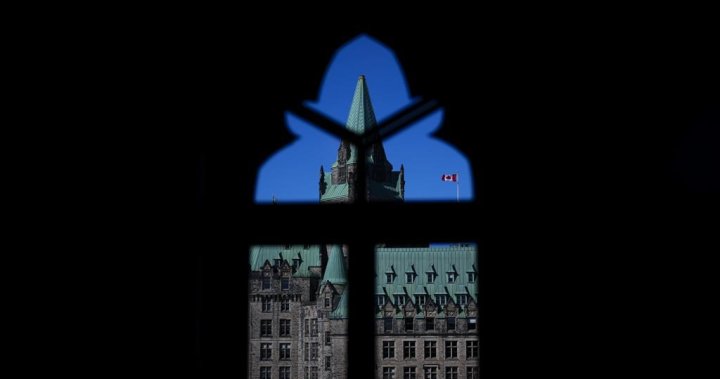The threats faced by Canada’s public officials have ebbed since the pandemic to the point that attacks are now considered “unlikely,” according to government documents obtained by Global News.
Intelligence briefs released under the Access to Information Act show that Ottawa has quietly lowered its terrorism threat level for bureaucrats, politicians and government facilities.
Canada’s Integrated Terrorism Assessment Centre (ITAC) had previously warned that officials could face attacks from anti-government extremists motivated by COVID-19 measures.
But while the overall national terrorism threat level remains at Medium, meaning an attack could occur, it was reduced to Low for public officials six months ago, the documents indicate.
“We cannot rule out a low-sophistication attack by an inspired lone actor,” according to an intelligence brief classified as secret. “However, the overall volume of threat reporting and credible indicators of intent and capability have decreased since pandemic-era peaks.”
“An act of terrorism targeting a Canadian public official is unlikely.”
The government does not publicly disclose its threat level for officials, but it appeared in the documents, which were released to Global News by the Canadian Security Intelligence Service.
“ITAC provides a terrorism threat level for public officials concurrently with the National Terrorism Threat Level,” said Eric Balsam, a CSIS spokesperson.
He confirmed the threat level for public officials was not publicly posted, but that it was dropped to Low in December 2023, “due to ITAC’s ongoing assessment of available intelligence, information, and events.”

Public officials faced a barrage of death threats during the pandemic, as far-right, anti-lockdown and anti-vaccination groups targeted them over COVID-related health measures.
The email you need for the day’s
top news stories from Canada and around the world.
Provincial health officers were frequently singled out, as well as politicians, amid protests fuelled by disinformation that depicted the pandemic as a hoax and part of a plot towards authoritarianism.
Government documents said the threats emanated from “radical libertarians, neo-Nazis, incels and other individuals who justify political violence in support of their ideologies.” Prime Minister Justin Trudeau and vaccine mandates were the most common targets.
Fuelled by COVID-19 conspiracy theories and anger over gun laws, Corey Hurren rammed the pedestrian gates at Rideau Hall with his pickup truck on July 2, 2020.
Armed with three firearms, he went looking for the prime minister in what a judge later called a “politically-motivated armed assault intended to intimidate Canada’s elected government.”
Police examine a pickup truck after Corey Hurren rammed the gates of Rideau Hall, July 2, 2020. THE CANADIAN PRESS/Adrian Wyld.
But as infection rates have fallen off, so have the threats, and ITAC now deems it improbable that public officials will face attacks, although it warned that incitement to political violence continues.
“Despite ongoing aggressive behaviours and criminal intimidation linked to personal grievances and protest movements, a violent extremist attack against a public official or government location is unlikely.”
The threat assessment was prepared “amid heightened tensions over the Israel-Hamas conflict,” as Trudeau was preparing to hold his cabinet retreat in Montreal in January.
But it found there was little likelihood of an attack on ministers, despite large protests and acts of vandalism at the riding offices of members of Parliament and Jewish institutions in the city.
“Adherents of religiously-motivated violent extremism, inspired by the conflict in Gaza, are more likely to attack more accessible targets such as Jewish community institutions, businesses, opposing protests or rallies, or Israeli diplomatic interests,” the documents said.
Stewart.Bell@globalnews.ca
© 2024 Global News, a division of Corus Entertainment Inc.





